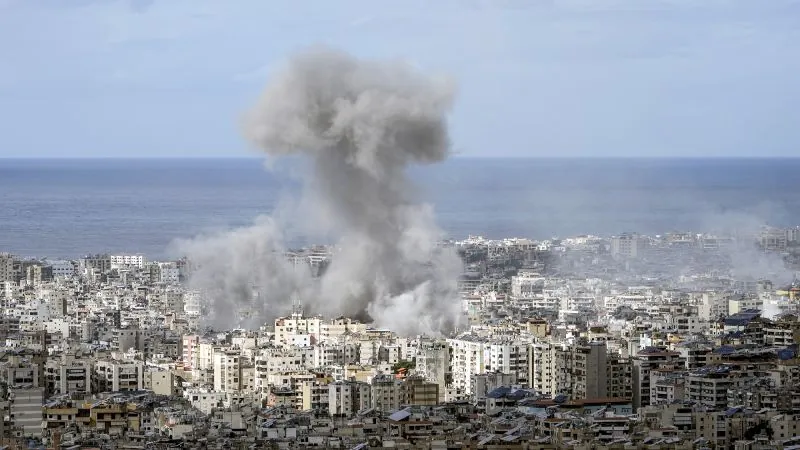
Tensions Ease? Israeli Cabinet to Vote on Lebanon Ceasefire Deal After Netanyahu Gives Initial Green Light
2024-11-25
Author: Ling
In a significant development on the troubled Israel-Lebanon front, the Israeli cabinet is poised to vote on a proposed ceasefire agreement that emerges from increasing tensions involving Hezbollah. Prime Minister Benjamin Netanyahu has reportedly approved the deal “in principle,” according to sources close to the negotiations.
A spokesperson for Netanyahu confirmed that the vote will take place on Tuesday, indicating a strong likelihood of passage. During a security consultation with senior Israeli officials on Sunday night, Netanyahu signaled his support for the ceasefire, amidst ongoing hostilities that have left many on edge.
While initial steps toward a ceasefire appear promising, certain details of the agreement still raise concerns in Israeli circles. Specific reservations were communicated to the Lebanese government late on Monday, and negotiations continue to refine the terms. Multiple insiders have highlighted that as Israel and Hezbollah maintain a precarious exchange of fire, any minor slip could jeopardize the talks.
The far-right National Security Minister Itamar Ben Gvir has condemned the ceasefire proposal, characterizing it as a “big mistake” and asserting that it represents a “historic missed opportunity” to decisively counter Hezbollah. His stance raises questions over potential internal divisions within the Israeli government regarding the handling of the conflict.
In stark contrast, former Defense Minister Benny Gantz, who previously resigned from the war cabinet due to Netanyahu’s strategies, has urged transparency in the negotiations. “The residents of the north, the fighters, and the citizens of Israel deserve to know the details,” Gantz stated, calling for accountability within the government.
Adding to the dialogue, U.S. envoy Amos Hochstein, who engaged in discussions with officials in Beirut, remarked that a ceasefire was “within our grasp” but ultimately depended on the agreement of the involved parties. Following constructive meetings with Lebanese Prime Minister Najib Mikati and parliament speaker Nabih Berri, Hochstein expressed optimism that gaps in understanding were narrowing.
"We have a true opportunity to bring an end to conflict," he noted, affirming urgency in concluding negotiations soon. His commendable efforts involved promising a 60-day halt to hostilities, which supporters believe could lay the groundwork for a more durable peace.
Tensions escalated in mid-September when Israel initiated a military offensive in Lebanon, retaliating against a series of border skirmishes that began in October of the previous year, after Hezbollah’s attacks in solidarity with Hamas during the ongoing Gaza conflict. Hostilities have already claimed numerous lives, including key Hezbollah leaders, while inflicting widespread injuries on civilians.
As these pieces of the puzzle fall into place, the world watches closely. Will peace prevail, or are we witnessing a fleeting moment of diplomacy in a landscape fraught with animosity? Stakeholders will be anxiously awaiting the cabinet’s decision on Tuesday, a choice that could either quench a smoldering fire or ignite new flames in an already volatile region.


 Brasil (PT)
Brasil (PT)
 Canada (EN)
Canada (EN)
 Chile (ES)
Chile (ES)
 España (ES)
España (ES)
 France (FR)
France (FR)
 Hong Kong (EN)
Hong Kong (EN)
 Italia (IT)
Italia (IT)
 日本 (JA)
日本 (JA)
 Magyarország (HU)
Magyarország (HU)
 Norge (NO)
Norge (NO)
 Polska (PL)
Polska (PL)
 Schweiz (DE)
Schweiz (DE)
 Singapore (EN)
Singapore (EN)
 Sverige (SV)
Sverige (SV)
 Suomi (FI)
Suomi (FI)
 Türkiye (TR)
Türkiye (TR)